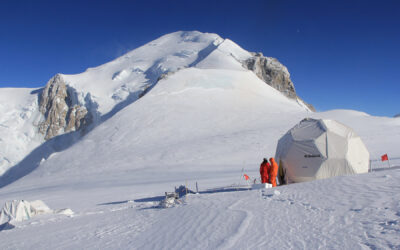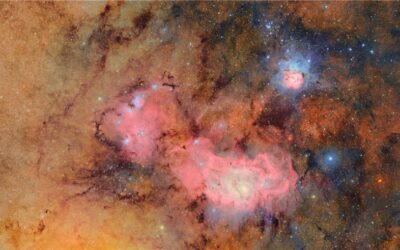Hundreds Around the Globe Gather Online to Hear Earth Week Message from Scientist, Explorer Dr. Kathryn D. Sullivan During World Premiere of the Desert Research Institute Foundation’s Special Presentation
The program will broadcast on Vegas PBS Channel 10 on April 25 at 4:30 p.m. and again May 1 at 4 p.m.,
and on Reno PBS on May 1 at 4 p.m.
Las Vegas (April 22, 2021) – Hundreds of people around the globe tuned in to watch the virtual world premiere of the Desert Research Institute (DRI) Foundation’s Earth Week special presentation of Sea, Earth and Sky: Celebrating the Spirit of Scientific Exploration, Discovery and Innovation honoring Dr. Kathryn D. Sullivan, the 31st DRI Nevada Medalist. A key feature of the hour-long online program was a highly-anticipated conversation with Dr. Sullivan as she shared eye-opening viewpoints about the state of planet Earth today.
Dr. Sullivan has seen the planet from many perspectives. She is a former NASA astronaut who completed three missions to space becoming the first American woman to walk in space, author of Handprints on Hubble: An Astronaut’s Story of Invention, former Administrator of NOAA, and most recently the first woman to dive to the Challenger Deep in the Marianas Trench.
“Climate is an everything issue, and it’s not a question whether the planet will be okay — the planet will be fine, there will be a chunk of rock, third one out from the sun, and orbiting around perhaps in perpetuity. The question is what becomes of everything that lives on this planet, including us but not only us,” says Sullivan. “That’s what we really need to think about, and it’s just super clear from the data that the way we are currently living our lives is pushing too much of the planet towards the limits of its operating system. Every complex system has such limits and there is always a train of consequences when you go blasting by them.”
Dr. Sullivan went on to provide her key takeaways for the human beings living on planet Earth.
“I think we need to be giving more thought to how we can temper a bit how we are living today. To do more to ensure a viable tomorrow and also how we can look at what we are building and how we are operating our societies and businesses today, and be very intentional about making them more resilient, which means move the needle from just hyper-efficiency and hyper-economic return into a longer time frame view that ensures the system retains some resiliency.”
Dr. Sullivan has dedicated her entire career to studying our planet, looking at Earth in unique ways and sharing her discoveries with the world.
“The scale, the immensity and power of our planet and its systems are very impressive, no two ways about it. It’s extraordinary. At the same time, my perspectives have taught me that every one of the systems of our planet, the geological, the biological, the forest, the trees, the air, the water, the ocean — things we tend to think of as separate —are really, richly, pervasively interconnected.”
Dr. Sullivan spoke about how science has become entangled with politics and how to restore the role of evidence-based science in our lives.
“When people participate in something, when they experience science in their own lives, that’s what opens the mental gateway to realizing, actually to revitalizing our innate scientific aptitudes. In the crib we are all scientists. The scientific method is the essence of how a human infant develops into an adult,” says Sullivan. “If we can create experiences in classrooms, in museums, in civic settings where there is an issue under discussion that let us participate in the building of an answer – that’s powerful. Things I helped build and participated in lead to a different kind of understanding, and they open different prospects for progress.”
Dr. Sullivan was presented with the 31st DRI Nevada Medal which has recognized outstanding achievement in science, engineering and technology for the last 30 years.
The special online presentation also featured the latest work of DRI as a global leader in environmental research and development, the history of the Nevada Medal award and special guest appearances rounded out the hour-long online broadcast.
Those who missed the virtual premiere or would like to watch it again, the program is set to broadcast on Vegas PBS Channel 10 on April 25 at 4:30 p.m. and again May 1 at 4 p.m., and on Reno PBS on May 1 at 4 p.m. After that the program will also be available for viewing on the DRI website.
About Desert Research Institute
The Desert Research Institute (DRI) is a recognized world leader in basic and applied interdisciplinary research. Committed to scientific excellence and integrity, DRI faculty, students, and staff have developed scientific knowledge and innovative technologies in research projects around the globe. Since 1959, DRI’s research has advanced scientific knowledge, supported Nevada’s diversifying economy, provided science-based educational opportunities, and informed policy makers, business leaders, and community members. With campuses in Reno and Las Vegas, DRI serves as the non-profit research arm of the Nevada System of Higher Education. For more information, please visit www.dri.edu.
###
Media Contact:
Detra Page
DRI Communications Manager
702.591.3786
Detra.page@dri.edu


